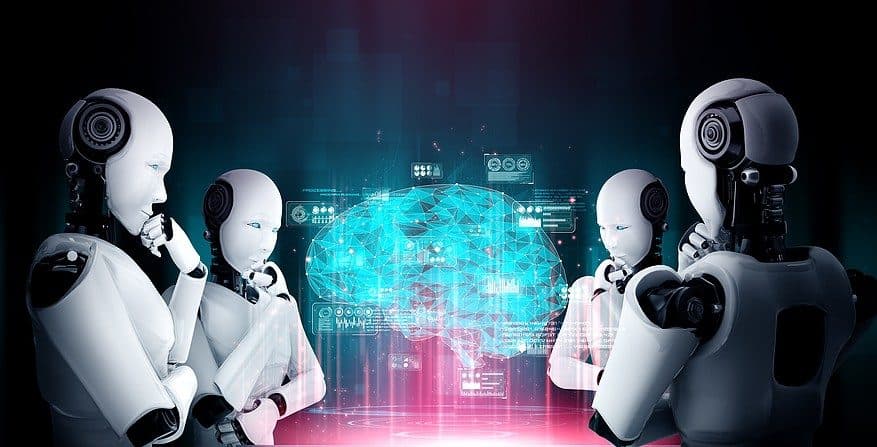As we were wrapping up our panel at the ERE Recruiting Conference last month, I mentioned the fact that talent acquisition teams have been inundated with AI narratives for longer than almost any other profession. Chatbots that promise to engage candidates? Assessments that promise to make the hiring decision an easier one? Predictive analytics that can tell you what to offer a candidate that will make them choose you over other options? AI that can do all of the above if we just trust it?
We’ve heard it all. And honestly, I don’t think I’ve met anyone who has worked in the trenches of recruiting who isn’t at least somewhat skeptical of all of these claims.
The real game changer in recruiting is not decision-making, though.
LLMs Are Not Human Replacements
Large language models (LLMs) are very good at what they are designed to do today. They can identify patterns in text, they can often understand context in plain language, and they generate coherent responses.
Can tools like ChatGPT help you write an email to a candidate? How about answering questions from a hiring manager? Sure, the same way a competent intern with language proficiency but little situational or industry awareness might help, so can LLMs.
Properly deployed LLMs could also help identify trends in data that humans would likely miss or could only be done in retrospect. Imagine software identifying qualified candidates who are overlooked by some hiring managers, or showing related jobs that a candidate might not ever see because there are thousands of open roles. How about plain text queries for analytics instead of having to dive into a reporting suite?
To me, those are the real exciting things coming out of new LLMs — but that’s not the only AI that matters.
Automation: The Real Game-Changer
Nobody gets into recruiting to change statuses on an ATS. Every recruiter I’ve met who has spent more than a couple of years in talent acquisition wants to spend their time connecting with candidates and hiring teams. They sit in front of hiring systems, Microsoft Outlook, spreadsheets, and LinkedIn because that’s what the job requires to keep things working.
Automation can take care of the repetitive, time-consuming tasks that recruiters have to do because nobody else wants to do them.
I use the example of interview scheduling because that continues to be a challenge. Even with a few of the great tools that are out there, there are many mediocre ones that are incredibly incomplete. While every tool can show calendar availability for one person and book an interview, what happens to the dozens of different things that can happen between the booking and the interview?
Do people get a text and email confirmation (with a calendar invite)? Do people get interview reminders? Do they have options to reschedule? How about a text confirmation before an interview? What happens if a hiring manager goes out sick or cancels? Does the interview get automatically rebooked with someone else on the team, does nothing happen, or does it just cancel out for the candidate? After a confirmed interview, does the status on your ATS change from pending interview to interviewed?
That’s one single part of the hiring process. Yet, plenty of companies that offer “automated” interview scheduling can’t handle basic edge cases that pop up frequently in the interview process. Half-automating a task can be worse than having no automation at all. When you can’t trust it to take care of 99% of cases, some people will just do things on their own.
Lean Into Automation Instead of Decision-Making
A recruitment bot running talent acquisition with a couple of humans overseeing things might read interesting for future-of-work stories, but it’s not realistic. Unless we don’t need people to do any work, hiring should remain an innately human task. I don’t want to interview with an LLM, even if it could do a better job than a human being.
Automation can help talent acquisition departments focus their resources on the parts of the hiring process where a human truly matters, though. Building relationships with possible candidates, helping out current candidates, and connecting with hiring teams and executive leadership is critical.
Automation can also help organizations standardize workflows and eliminate some of the subjectivity that can be harmful to candidates, though I would caution that you need to look at ways that automation could possibly harm candidates, too.
There’s a whole world of solutions out there that help reduce the time recruiting teams spend on trivial tasks so they can connect with internal and external stakeholders to drive better results. Identifying and vetting those opportunities with vendors can be a truly valuable use of time instead of chasing the dream of AI delivering on all of your hiring processes.
In spite of the hype, AI-driven decision-making is not the real game-changer for recruiting. Yes, there’s a place for ChatGPT and similar models in recruiting, and those use cases will continue to evolve. But if you want to get ahead of the competition today and in the near future, you should be considering how much automation you can put into place without ever having an LLM make any sort of ranking or hiring decision.
